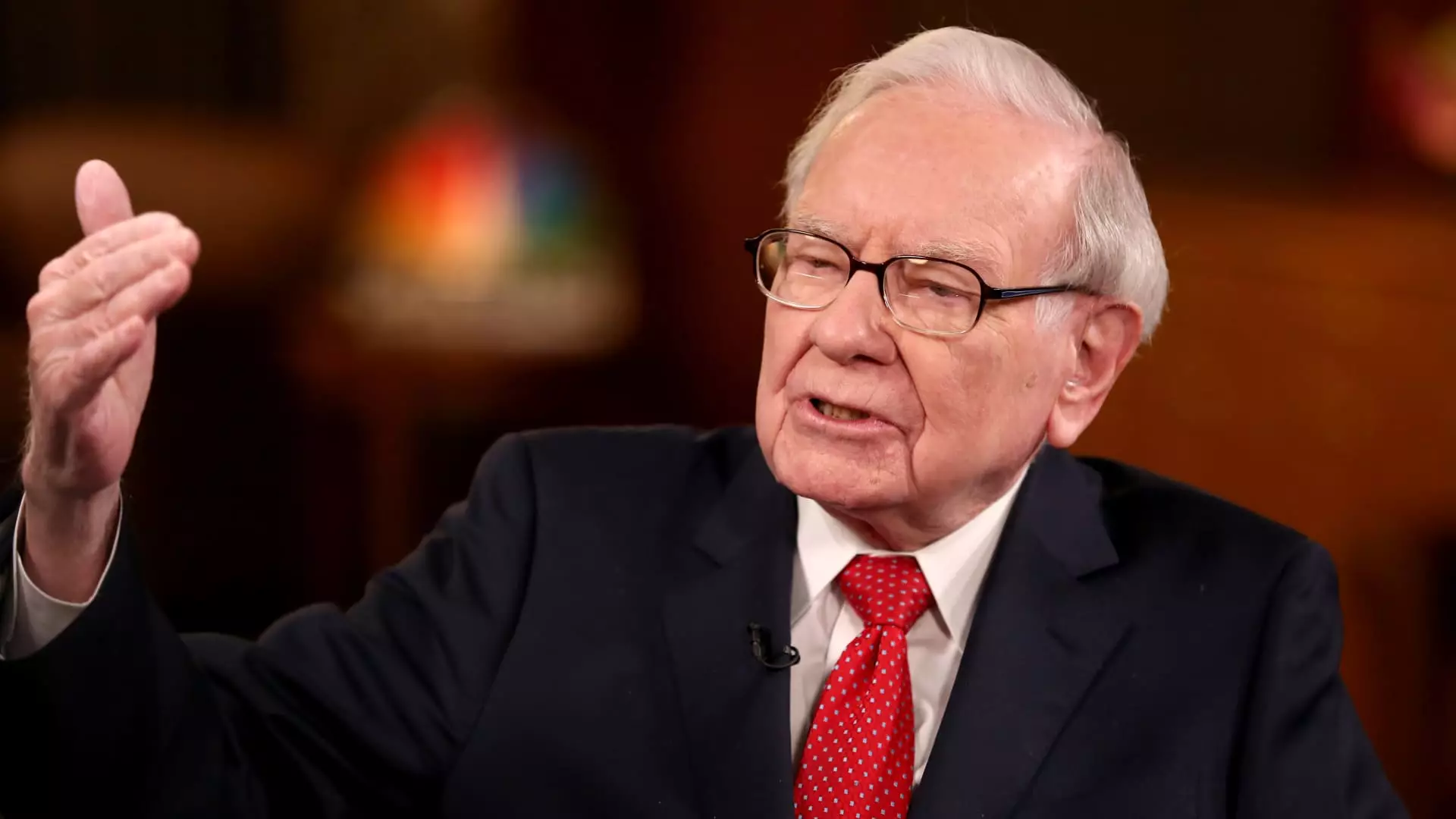In today’s digital landscape, misinformation spreads like wildfire. One glaring example occurred when President Donald Trump shared a fantastical narrative on Truth Social, suggesting that the stock market’s decline is a deliberate maneuver, backed by none other than Warren Buffett. This narrative implies that Buffett, revered as one of the most astute investors of our time, supports Trump’s economic strategy of crashing the market to manipulate interest rates. The sheer absurdity of this claim is mind-boggling but, critically, it highlights a severe issue: the deliberate creation and proliferation of false narratives in politics and business.
The video shared by Trump claimed that Buffett endorsed this economic chaos. Subsequently, Buffett’s company, Berkshire Hathaway, staunchly refuted these claims, asserting that all reports attributing such opinions to Buffett were unequivocally false. This incident serves as a perfect case study of how misinformation is weaponized, skewing public perception and undermining the credibility of established industry figures.
The Consequence of Amplified Falsehoods
In a time when truthfulness is paramount, the risks associated with these kinds of falsehoods extend far beyond individual reputations. Misinformation can lead to irrational market behavior, causing real economic consequences. Buffett responded to such unfounded narratives by vocalizing the need for clarity, emphasizing that falsehood can spread rapidly in the age of social media. He stressed the importance of not attributing opinions to him without clear evidence, reminding us that one ripple of misinformation can create a tsunami of public misconception.
When senior public figures engage in the spread of misinformation—whether intentionally or accidentally—they have the potential to influence not just the stock market but also trusts in institutions, governmental decisions, and the economic wellbeing of everyday individuals. The ramifications can permeate various levels of society and economics, creating instability where consistent, factual reporting should reign.
The Psychology Behind Misinformation Sharing
People are more likely to share sensationalized content without verifying facts first due to cognitive biases such as affinity bias and confirmation bias. The striking allure of a viral video provides an emotional context that bypasses logical scrutiny. For supporters, the notion that a beloved president could be operating in an unorthodox yet strategic manner appears validating and makes for a compelling narrative.
This is not merely a consumer issue, as individuals are now inadvertently becoming conduits of misinformation. The spread of disinformation becomes entrenched in the culture, blurring the line between fact and fiction. Here, Buffett’s involvement—intentional or otherwise—serves to intertwine the realms of business acumen with political strategy, complicating the ability of the public to discern credible information.
The Ethical Responsibility of Public Figures
Public figures wield immense power and influence. They hold the ability to shape narratives, both positively and negatively. The responsibility lies not only on the figures themselves, like Buffett or Trump, but also on the platforms where this content has the potential to flourish. When elected leaders promote claims without substantial evidence, they are not only doing a disservice to the truth but a disservice to the citizens who rely on them for accurate information.
As such, those in positions of authority must become more vigilant in their communication. The economic stakes are too high, especially in a fragile global market laden with uncertainties. Buffett’s insistence on rejecting any misleading attribution of his voice and character reinforces the need for higher standards in public discourse. If influential public figures can commit to transparency, they may help in curbing the tide of misinformation.
The Role of Media Literacy in Combating Misinformation
To counter the onslaught of misinformation, bolstering media literacy is paramount. Individuals must develop critical skills to distinguish between credible news sources and sensational content. Education systems should emphasize the importance of verifying information and understanding the context behind news stories. Equipped with sharp interpretation skills, citizens can resist the allure of clickbait and propagate only well-founded narratives.
In this evolving landscape, as financial markets, political affiliations, and public opinions intertwine more than ever, the onus falls upon us—citizens, educators, and leaders—to cultivate a culture that values truth over sensationalism. Failure to do so not only jeopardizes individual financial health but threatens the functioning of society as a whole.

